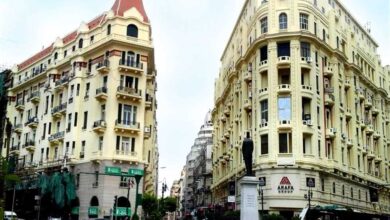Tahrir Square has changed. The number of protesters has dropped and new faces have appeared, though many old ones remain too. Several political groups and parties have insisted on continuing their sit-in until the revolution achieves its objectives, while others are contemplating leaving.
This change is normal. After the fall of Hosni Mubarak and many old regime figures, a considerable segment of the Egyptian public felt sufficiently satisfied. The ex-president's ouster put an end to their anxieties about the hereditary power transfer to his son and brought an immediate sense of relief.
There’s nothing surprising about the drop in numbers in Tahrir from the millions that filled the square in January and February. Nations do not carry out revolutions every six months. We're now in a different phase of the revolution whose mission is not to bring down the regime but to purge it of corrupt figures from the past and build a new political system. Had it not been for the mismanagement of the transitional period — marked by confusion and a slow pace of change — Egypt would have been gearing up for free elections and a genuine democratic transformation.
The success and failure of nations is determined by their ability to build state institutions, especially security and judicial institutions, that are professional and operate independently of the main executive authority ( the presidency in Egypt's case). Failed states are those who build a democratic edifice without institutions, like Pakistan and Iraq.
At this stage, the foundations we lay are key to our success in building a democracy. The protests in Tahrir will bolster this transition. Their calls to punish police officers who killed protesters, for example, will require a swift cleansing and restructuring the interior ministry. Unless this happens, people will not trust the interior ministry to secure the upcoming elections.
The same applies to the judiciary, whose independence must be guaranteed. Protesters’ doubts about judicial integrity should be seriously addressed by the government and the ruling Supreme Council of the Armed Forces.
Despite relatively small numbers in the square, the lack of coordination between the stages and the presence of some extremist views every now and again, the many ordinary Egyptians who stood in Tahrir for long days and remained outside the media spotlight will continue to be thrust this revolution forward.
Translated from the Arabic Edition.




